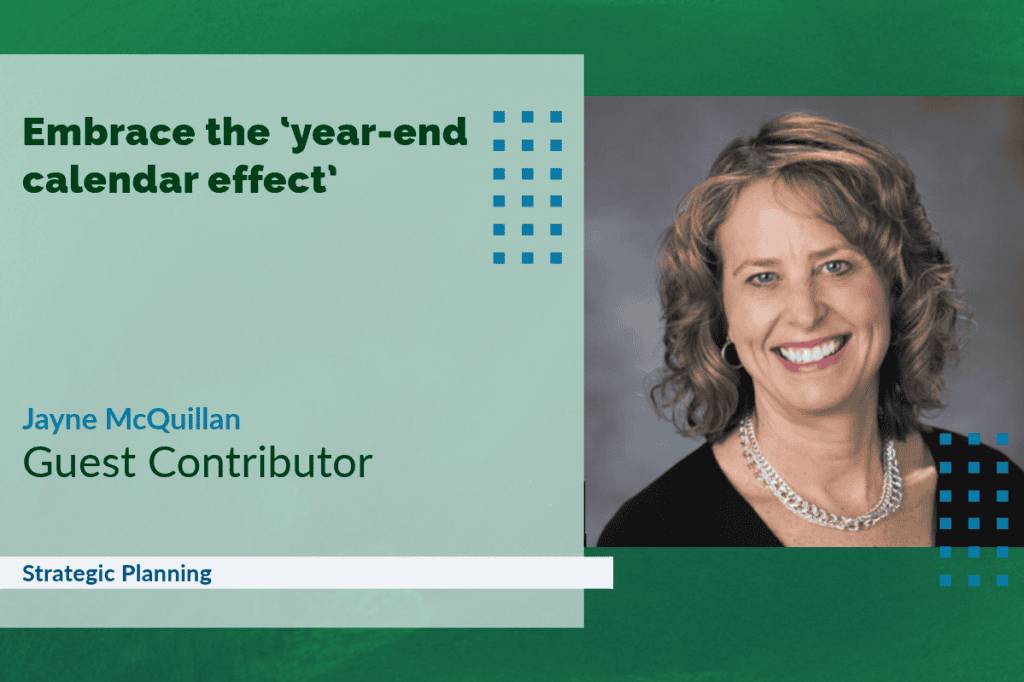
February 10, 2025
2024 has come to a close, and 2025 is in full swing.
This time of year often triggers the ‘year-end calendar effect,’ a psychological phenomenon where the transition to a new year encourages reflection, goal-setting and self-assessment.
People tend to recall more memories and experience heightened emotions – sometimes even feelings of stress or anxiety – as they assess their achievements and plan for the future.
Did we achieve what we set out to do?
Are we on track to fulfill our long-term goals?
For business owners, these questions take on even greater significance.
The new year isn’t just about resolutions – it’s about revisiting business exit strategies and ensuring they align with long-term goals.
A time of reflection for business owners
Over the holidays, many business owners take time off to spend time with family, allowing for rare downtime to assess what they accomplished during the past year and begin thinking about what they want to achieve next.
At Journey Consulting, we see the results of this introspection firsthand in the first quarter with an uptick in consultation requests to discuss strategic planning, value creation and business exit planning.
Whether it’s assessing your company’s growth, envisioning retirement or planning a leadership transition, now is the time to ask:
- Is my business where I want it to be?
- Am I personally fulfilled by the position I’m in?
- Is it time to think about retiring in the next few years?
- Is my business – and my life – ready for the next chapter?
The calendar change inspires people to take stock of their accomplishments and set intentions for what lies ahead.
Whether it’s defining a New Year’s resolution, refining a business strategy or mapping out an exit plan, this season is all about alignment and forward-thinking.
The power of setting goals
Goal setting is part of our human nature.
Achieving meaningful milestones brings purpose and fulfillment, yet it also creates the need to reset and aim higher.
Personally, I like to reflect on three key areas at year-end:
- Personal health and well-being
- Financial health
- Business success
This self-inventory reveals where I’m thriving, where I need to focus and what I want to achieve moving forward.
Goals evolve with time, and what matters most at one stage of life may not resonate at another.
The goals, hopes and dreams my three children in their late 20s and early 30s have are very different from those of my husband and me at this stage of our lives.
We can understand and appreciate their perspectives, but they are not the same as ours. Perspectives change, and the need to plan for what’s next is always on the radar.
Exit planning: A key component of the journey
The natural inclination to reflect and set goals during the calendar change is a powerful tool, especially for business owners.
It’s not just about personal resolutions or next year’s sales targets – it’s about looking holistically at your business and life.
What’s your ultimate vision?
Where are you on your journey toward it?
For many, this means planning for the eventual exit from their business.
Planning for your exit is not a one-time event or something to be tackled when you’re ready to step away.
It’s a journey, one that requires intentionality, preparation and a long-term perspective.
Just like setting personal goals, the steps you take today can profoundly impact the options you’ll have tomorrow.
Why start planning now?
- Value creation – Businesses that are strategically managed for long-term value are not only more attractive to buyers but also provide greater satisfaction to owners during their tenure.
- Peace of mind – Knowing you have a clear plan in place reduces stress and helps you focus on what truly matters – whether that’s growth, leadership development or preparing for life beyond your business.
- Maximize outcomes – Whether your exit involves passing the torch to family, selling to an employee group or engaging an outside buyer, a well-executed plan ensures you achieve the best possible outcome.
Start small, start now
Reflecting on the calendar change is the perfect opportunity to take a step toward exit planning. Begin by asking yourself:
- What’s my vision for life after the business?
- Is my business ready to thrive without me?
- Have I built a team and structure that supports my long-term goals?
These are big questions that can feel overwhelming, but the key is starting the conversation and making incremental progress.
Build your legacy today
The year-end calendar effect is more than just a psychological phenomenon – it’s a reminder of the importance of reflection and planning.
For business owners, it’s the ideal time to align your goals, prepare for the future and ensure your efforts today build the legacy you envision for tomorrow.
Taking small, deliberate steps now can set the foundation for a smooth transition when the time comes.
The journey toward your future starts with one question: Are you ready to begin?
 Bringing big city-style treats to Sheboygan
Bringing big city-style treats to Sheboygan Trust Point: Meeting fiscal, volunteer needs across communities
Trust Point: Meeting fiscal, volunteer needs across communities







